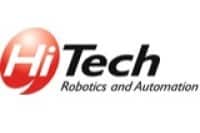Who are the trustees of an employee ownership trust?
The trustees are the directors of the corporate trustee company which holds the shares in the trading company/group. Their role is to ensure that the company is being managed (by the directors of the trading company) in the best interests of the employees as a whole. The exiting shareholders may sit on the board of the trustees, however it is important to ensure that specific conditions laid out by HMRC are observed in order get the full benefits of the EOT structure.
Trustees may comprise exiting shareholders, current directors and employees of the trading company, or persons independent of the company such as solicitors or accountants, or professional independent trustees. There are few set rules on the composition of the board of trustees and a trusted and experienced EOT advisor would offer advice on this.

What is the role of an employee trustee?
In an EOT, the role of the employee trustees is to represent the interests of the employees as a whole. They are responsible for making sure that the trust is successful and benefits the employees to maximise their engagement and commitment to the company. An EOT trustee is not directly involved in the management of the company, this remains the responsibility of the board of directors of the trading company.
Generally, a trustee would have a duty to oversee the management and leadership of the company and have the rights to interject if management were not considered to be acting in the best interests of the employees as a whole.
What is the role of an exiting shareholder Trustee?
It is not uncommon for an exiting shareholder to act as a trustee (and potentially continue as a director of the company) whilst ever there is a level of deferred consideration payable i.e. until they are fully paid for the sale of their shares in the company to the EOT. The trustee must still ensure that management are running the business in the best interest of the employees as a whole. Once the deferred consideration is paid, the employees will benefit from distributions of future profits, and so it is in the employees best interest that the deferred consideration is paid sooner rather than later.
Our EOT advisers
We have advised many businesses to complete their transition to employee ownership. Hawsons have been working with businesses on EOTs since they were introduced in 2014, completing our first deal in 2016.
We are a member of the Employee Ownership Association who represent organisations that are employee-owned or transitioning to employee ownership across the UK.
Pete Wilmer
Corporate Finance Partner

Pete Wilmer
Senior Partner
Pete leads the Corporate Finance offering across the firm, having has spent much of his career within a large international accountancy firm and corporate banking before returning to Hawsons, where he started. Working with businesses of all sizes, Pete has an exceptional breadth of experience which he brings to the benefit of clients.
An early adopter and passionate believer in good employee ownership, Pete has helped numerous businesses transition to employee ownership and works extensively to promote the employee ownership model.
Related content
TMS Europe complete transition to an Employee Ownership Trust
Peter Wilmer and Jack Ware, members of the Hawsons Corporate Finance team, acted as lead advisors for TMS Europe Limited’s (“TMS”) transition into employee ownership. Ryan Fitzpatrick from Shakespeare Martineau LLP provided legal advice on the transaction. TMS Europe...
Hi-Tech Automation – 12 months into Employee Ownership
Employee Ownership is where the whole or part of a Company is owned by, or on behalf of, its employees. The government introduced some new and relatively generous tax reliefs for employee-owned companies in 2014 and since then Employee Ownership Trusts (“EOTs”) have...
Employee ownership trust problems
In this article, we are going to outline some of the problems that might arise if the transition to employee ownership is not managed and advised on correctly.Valuation of the company When selling your business to an EOT it is very important that you keep the...




